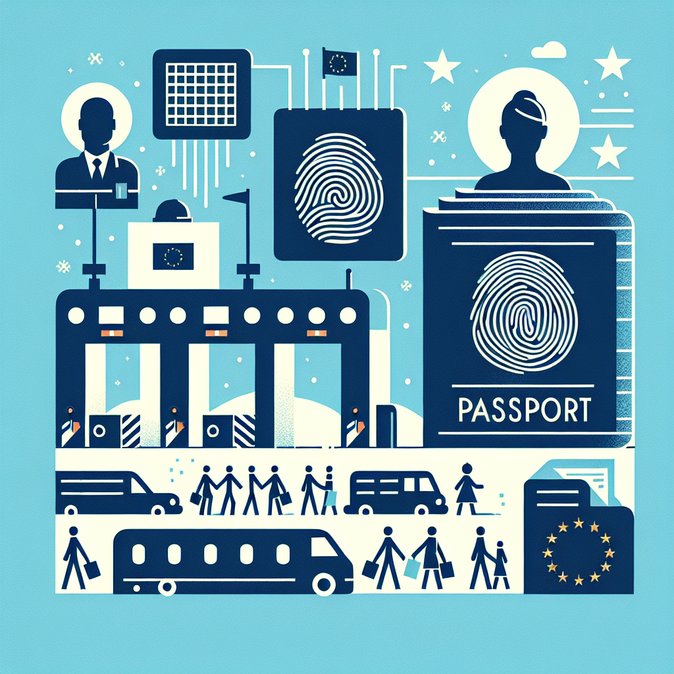
Poland took a decisive leap toward fully digital borders at 00:01 on 24 November when Border Guard officers simultaneously switched on the EU Entry/Exit System (EES) at 38 land, sea, rail and air checkpoints, including Warsaw-Chopin, Kraków-Balice and the high-traffic Korczowa and Dorohusk road gates to Ukraine. The move replaces ink passport stamps with a secure record that captures four fingerprints, a high-resolution facial scan and passport data in under one minute. Officials say EES will eliminate guesswork around the "90/180-day" Schengen rule while enabling instant checks against Interpol, SIS and VIS alerts.
The nationwide roll-out follows a six-week pilot on the Ukrainian frontier that processed more than 600,000 travellers. First-time enrolment currently averages 90 seconds, but repeat travellers can already clear e-gates in as little as 20 seconds. Interior Minister Marcin Kierwiński framed the €47 million upgrade as both a facilitation tool and a response to "hybrid threats" from Russia and Belarus. A further 140 secondary crossings should come online by 4 December, making Poland the first EU country with a 100 % EES perimeter.
![Poland Activates EU-Wide Biometric Entry/Exit System at 38 Border Points]()
For corporate mobility teams the impact is immediate. Travellers must budget an extra five-to-ten minutes on their first post-24 November arrival while biometrics are taken, but can then expect quicker repeat trips. HR teams are updating travel policies to instruct assignees to keep Polish residence cards handy until databases fully synchronise; a mismatch between a residence-permit record and an entry scan could trigger an over-stay alarm. Multinationals are also reviewing data-privacy clauses because EES logs will become discoverable evidence in tax-residency, posted-worker and social-security audits.
Strategically, Poland’s early adoption starts the nine-month countdown to ETIAS, the prepaid travel authorisation that Brussels says cannot launch until EES has proven stable. Warsaw hopes its head-start will strengthen calls to lift the temporary spot checks that Germany and Lithuania reintroduced this autumn, arguing that a pan-EU biometric perimeter removes the need for internal border controls. Airlines have welcomed the change and predict shorter peak-time queues once travellers have enrolled.
The nationwide roll-out follows a six-week pilot on the Ukrainian frontier that processed more than 600,000 travellers. First-time enrolment currently averages 90 seconds, but repeat travellers can already clear e-gates in as little as 20 seconds. Interior Minister Marcin Kierwiński framed the €47 million upgrade as both a facilitation tool and a response to "hybrid threats" from Russia and Belarus. A further 140 secondary crossings should come online by 4 December, making Poland the first EU country with a 100 % EES perimeter.

For corporate mobility teams the impact is immediate. Travellers must budget an extra five-to-ten minutes on their first post-24 November arrival while biometrics are taken, but can then expect quicker repeat trips. HR teams are updating travel policies to instruct assignees to keep Polish residence cards handy until databases fully synchronise; a mismatch between a residence-permit record and an entry scan could trigger an over-stay alarm. Multinationals are also reviewing data-privacy clauses because EES logs will become discoverable evidence in tax-residency, posted-worker and social-security audits.
Strategically, Poland’s early adoption starts the nine-month countdown to ETIAS, the prepaid travel authorisation that Brussels says cannot launch until EES has proven stable. Warsaw hopes its head-start will strengthen calls to lift the temporary spot checks that Germany and Lithuania reintroduced this autumn, arguing that a pan-EU biometric perimeter removes the need for internal border controls. Airlines have welcomed the change and predict shorter peak-time queues once travellers have enrolled.


